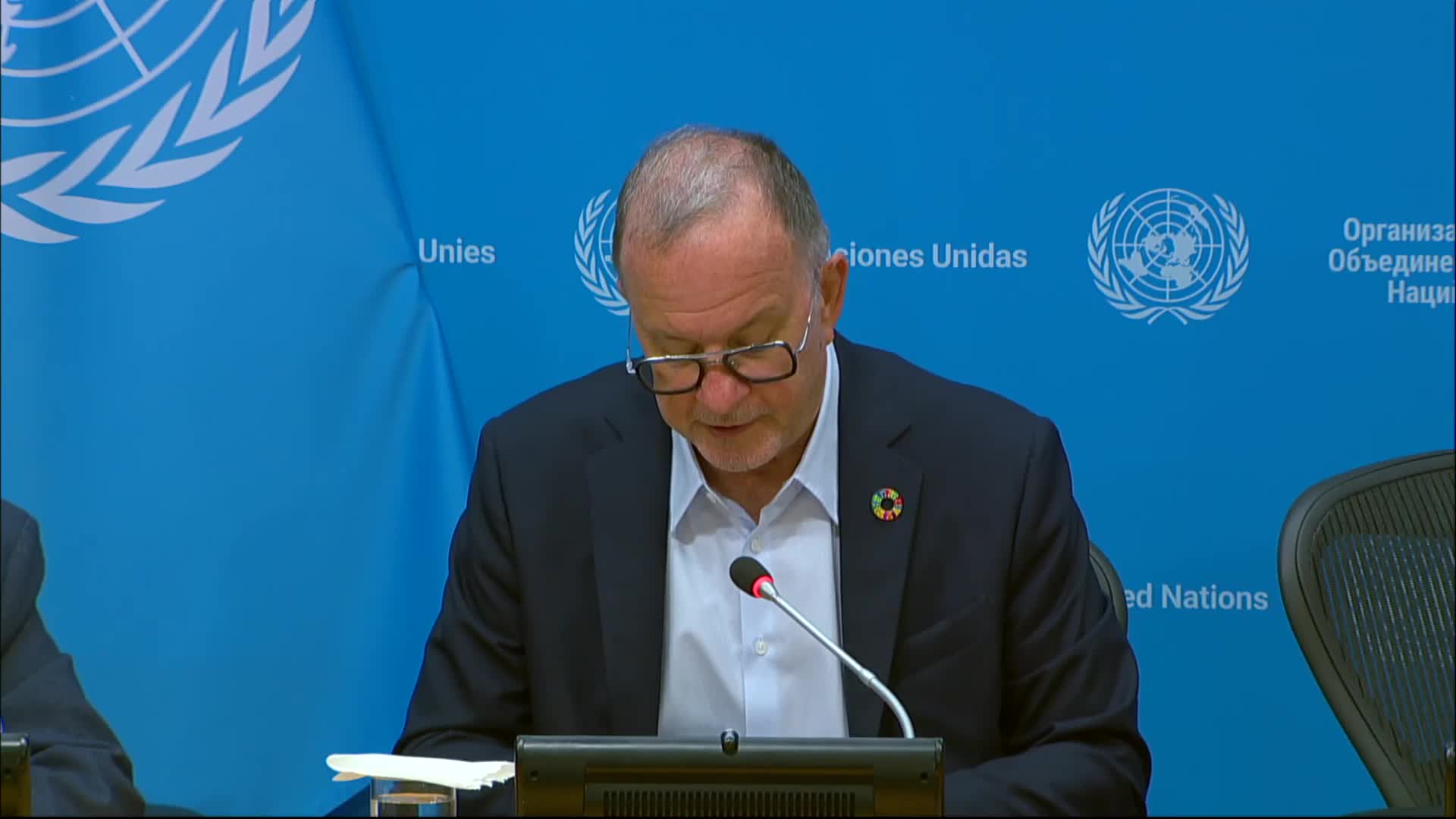UNICEF reports dire conditions for children in Gaza amid ongoing humanitarian crisis
August 03, 2025 | United Nations, Federal
This article was created by AI summarizing key points discussed. AI makes mistakes, so for full details and context, please refer to the video of the full meeting. Please report any errors so we can fix them. Report an error »

The ongoing humanitarian crisis in Gaza has reached alarming levels, with UNICEF reporting that over 320,000 children are at risk of acute malnutrition. The dire situation is compounded by the devastating impact of war, which has claimed the lives of more than 18,000 children since the conflict began, averaging 28 child fatalities each day. Families are facing severe hunger, with one in three people going days without food, and malnutrition rates exceeding 16.5 percent.
During a recent visit to Gaza, UNICEF officials witnessed firsthand the suffering of families, including those of children killed in airstrikes while waiting for food. The emotional toll on survivors, particularly children, is profound, as many are left traumatized and without basic necessities. Reports from stabilization centers reveal infants suffering from acute malnutrition, with mothers unable to breastfeed due to their own hunger.
UNICEF is actively working to alleviate the crisis by providing essential services, including safe water delivery and nutritional support. However, the organization emphasizes that the scale of need far exceeds current aid efforts. Despite some easing of humanitarian access, the flow of supplies remains insufficient to meet the urgent demands of the population.
The situation is further complicated by the ongoing blockade and the need for increased humanitarian and commercial traffic into Gaza. UNICEF advocates for a significant increase in the number of trucks delivering aid, calling for a daily influx of 500 trucks to stabilize the situation. The organization also stresses the importance of allowing dual-use items and fuel to support critical infrastructure, particularly the water system, as the region faces extreme heat and the risk of disease outbreaks.
As the conflict continues, UNICEF highlights the necessity for a sustained ceasefire and a political resolution to prevent further loss of life among children. The organization’s appeal for funding remains critically underfunded, with only 30% of health and nutrition needs currently met. The choices made in the coming days will be crucial in determining the future of countless children in Gaza, who are enduring unimaginable suffering.
During a recent visit to Gaza, UNICEF officials witnessed firsthand the suffering of families, including those of children killed in airstrikes while waiting for food. The emotional toll on survivors, particularly children, is profound, as many are left traumatized and without basic necessities. Reports from stabilization centers reveal infants suffering from acute malnutrition, with mothers unable to breastfeed due to their own hunger.
UNICEF is actively working to alleviate the crisis by providing essential services, including safe water delivery and nutritional support. However, the organization emphasizes that the scale of need far exceeds current aid efforts. Despite some easing of humanitarian access, the flow of supplies remains insufficient to meet the urgent demands of the population.
The situation is further complicated by the ongoing blockade and the need for increased humanitarian and commercial traffic into Gaza. UNICEF advocates for a significant increase in the number of trucks delivering aid, calling for a daily influx of 500 trucks to stabilize the situation. The organization also stresses the importance of allowing dual-use items and fuel to support critical infrastructure, particularly the water system, as the region faces extreme heat and the risk of disease outbreaks.
As the conflict continues, UNICEF highlights the necessity for a sustained ceasefire and a political resolution to prevent further loss of life among children. The organization’s appeal for funding remains critically underfunded, with only 30% of health and nutrition needs currently met. The choices made in the coming days will be crucial in determining the future of countless children in Gaza, who are enduring unimaginable suffering.
View full meeting
This article is based on a recent meeting—watch the full video and explore the complete transcript for deeper insights into the discussion.
View full meeting